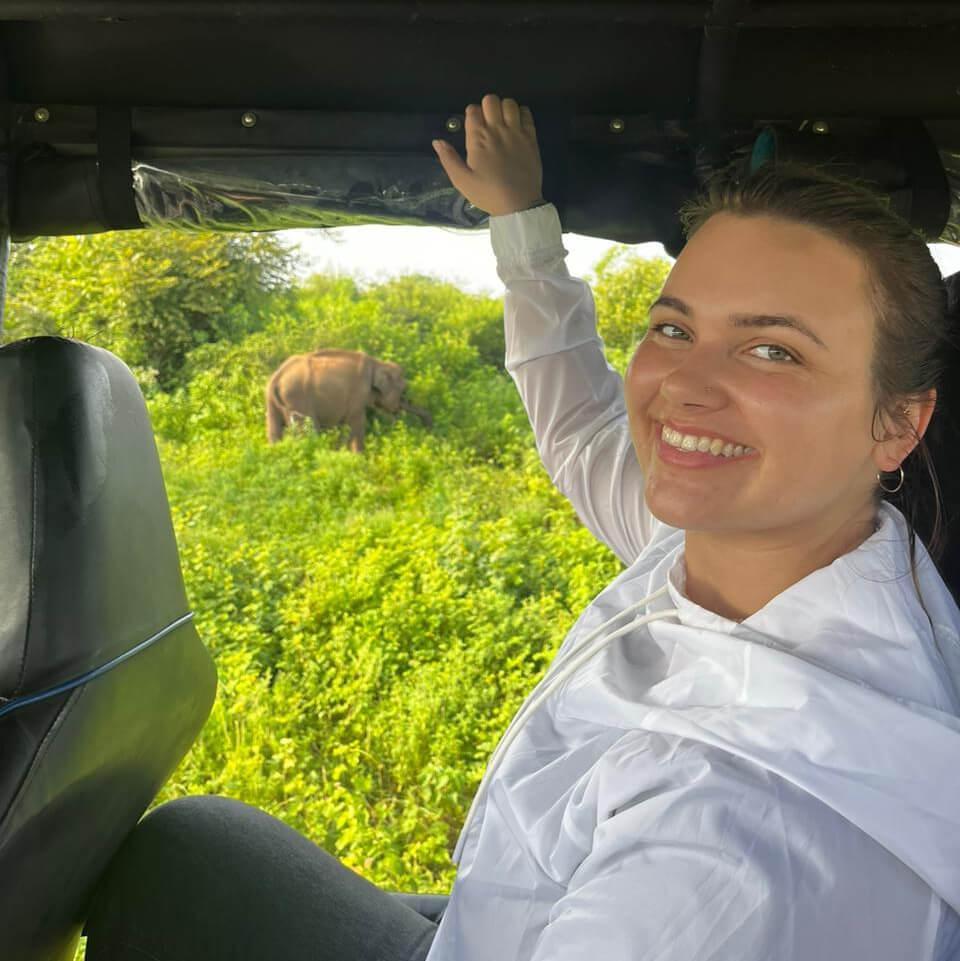Change is Buzzing in Zambia
The iconic Miombo trees of northwestern Zambia are often home to honeybee hives. However, a new local start-up is training farmers and beekeepers in more sustainable beekeeping methods, preserving forests and bringing profits back into the community.
By now, it's no secret that bees are in danger. However, contrary to popular belief, honeybees themselves are not at risk (though native bee populations that don’t produce honey are still at risk globally). There is a climate concern behind honeybees and honey production, though, a concern that lies in the beekeeping process - a practice that originated in North Africa over 9,000 years ago.
For Harry Malichi, the art of beekeeping is a part of him. It lives in his DNA and throughout the communities of north-western Zambia. "Growing up in abject poverty, beekeeping was our sole resource in the region,” he says. “We didn't realise it was an unsustainable model; it was simply ingrained in our culture as a way of life."
It wasn’t until Malichi went to university that he discovered the adverse effects of this practice on the environment - particularly on Zambia’s rich forests. He began to question the traditional methods of using Zambia’s Miombo trees as hives, a process which involves cutting a mature tree along with two smaller trees for hive construction. Not only does the method contribute to deforestation, but it also requires strenuous manual labour, excluding women and the elderly due to its physical demands.
And after all that work, only 7kg of comb honey is produced per hive, a single-use model that means each hive is used once in a season. With approximately 20,000 farmers producing an average of 150 hives each, 3 million trees are destroyed each season.
"Here, people overlook the imbalance in nature because it's not always visible. But traditional beekeeping methods have led to intense deforestation,” Malachi says, highlighting the unexpected consequences of beekeeping. “Despite the lack of rain this season, few connect it to climate change knocking on our doors. Cutting trees in Zambia impacts us all globally; it’s a prime example of how climate issues transcend borders."
Driven by a passion to revolutionise honey production while keeping the community at its core, Malichi founded Wuchi Wami in 2018. His vision intertwines economic practices with sustainability and empowerment, shaping a new model for the industry. Malichi's for-profit initiative introduced beekeeping with pine bark hives instead of Miombo wood, significantly reducing tree regrowth time from 40 years to less than 10.
Wuchi Wami’s simple change produces a substantial increase in yield and longevity compared to traditional methods. “The accessibility of pine and its light weight allows for the inclusion of women and the elderly to work. Each hive produces over 30kg of comb honey and remains reusable for a minimum of 8 years.” And their method’s success extends to profit margins as well. “Our evaluations show that farmers who were previously generating $3/month are now generating nearly $50/month,” Malachi explains.
Wuchi Wami's process begins by identifying rural farmers, often engaging existing beekeepers, and entering them into a comprehensive database. The farmers then undergo intensive training, which involves education on sustainable beekeeping, as well as how to transform their approach into a viable business. Site assessments, quality assurance, and training sessions on harvesting techniques are all included. Once the farmers have completed the training, Wuchi Wami extends support with beehives made from pine, as well as resources and market access.
Malichi’s commitment to a circular business model lies at the heart of Wuchi Wami. “At the end of each season, we purchase the honey from their farmers at competitive prices, ensuring the opportunity cost from traditional beekeeping to sustainable, so they commit to the new model,” he says.
Cutting trees in Zambia impacts us all globally; it’s a prime example of how climate issues transcend borders.
Wuchi Wami’s profit-making approach enables the creation of an organic product for global markets while funding farmer training and hive production. Since their start in Zambia in 2018, Wuchi Wami has expanded to Botswana, Namibia, and Zimbabwe, even exporting beeswax to Norway, using sales revenue to support reforestation efforts.
While the idea of an eco-inclusive business is new to Zambia, Malichi is confident in its success. “I believe that we are enabling our business and our farmers to be agents of change,” he says.
With over 500 farmers handling upwards of 12,000 hives and 2,000 additional farmers in their database for selection and training, Wuchi Wami is ready for the next stage of growth. “This year, we forged our inaugural external partnership with TNC Nature Conservancy and embarked on our first round of fundraising to expand our model across Zambia.”
Still at the heart of Wuchi Wami’s mission lies the communities that have long nurtured Zambia’s beekeeping culture. It is the farmers and the historic forests, the generations past and those to come, which inspire Malichi and his team.
In their commitment to preservation, Malachi reiterates Wuchi Wami’s inclusive mission; “We are growing a community that helps offset imbalances in nature in order to create better ecosystems.”
And as difficult as evolution can be, Malachi knows that changing attitudes toward conservation and sustainability is more than possible; “It’s inevitable,” he says.
Most Popular
The Climate Tribe delivers stories about Biodiversity and Conservation, Circular Economy, Food and Water , and how they intersect with climate.
Subscribe
Get the latest stories inspiring climate action around the globe straight to your inbox.






